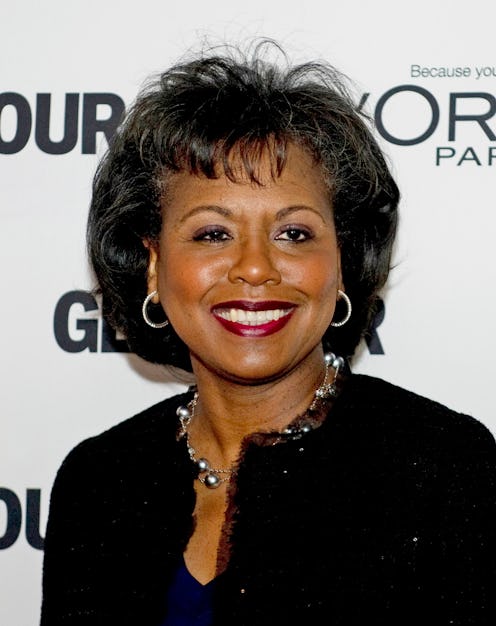Entertainment
A Look At Anita Hill's Harassment Allegations
In 1991, the topic of workplace sexual harassment was even more taboo than it is today. When Anita Hill accused Clarence Thomas of harassment, it thrust the issue into the national spotlight in a major way — since Thomas was poised to become the next Supreme Court Justice, Hill's allegations immediately became national news. (Thomas repeatedly denied Hill's allegations.) The public took interest and the hearings were watched by viewers in 20 million homes as the Judiciary Committee listened to hours of testimony. The hearings are back in the spotlight due to the upcoming premiere of HBO's film Confirmation, which will mainly focus on the hearing room drama and what Clarence Thomas allegedly said to Anita Hill.
Thomas was ultimately approved as a Supreme Court Justice and the only two people who will know the whole truth are he and Hill. But, her allegations are disturbing and it's worth taking a close look at what she claims occurred during her time working for Thomas. Shortly after graduating from Yale Law School, Hill was hired as special counsel to Judge Thomas at the Office for Civil Rights in the Department of Education. As reported by The New York Times, Hill claimed Thomas made sexual advances towards her during this time. However, after the alleged behavior stopped, she agreed to move into a role as his personal assistant at the Equal Employment Opportunity Commission. Hill claimed the alleged harassment resumed shortly thereafter, but she didn't feel she could quit because she was just 25 years old and lacked the professional experience to get another job, according to the New York Times.
As reported by Time, Hill testified that Thomas allegedly frequently spoke to her in graphic detail about pornographic films. Her claims were as follows:
"He spoke about acts that he had seen in pornographic films involving such matters as women having sex with animals, and films showing group sex or rape scenes... He talked about pornographic materials depicting individuals with large penises or large breasts involved in various sex acts."
She also testified that Thomas allegedly spoke to her "graphically of his own sexual prowess." Hill alleged several examples of this on this witness stand — she claimed that he described his penis as "being larger than normal" and that he allegedly bragged about the pleasure he'd given women during oral sex. She also described an alleged incident in which Thomas asked her who had "put pubic hair" on his soda can.
According to CNN, Hill testified that Thomas allegedly frequently asked her out on dates and would pressure her for explanations when she declined. She also claimed that he commented on her attire "in terms of whether it made me more or less sexually attractive."
When questioned by Joe Biden, Hill also recounted another alleged incident in which Thomas spoke to her about pornography, according to the same Time report. She testified that Thomas allegedly referred to the name "Long Dong Silver," a character in a pornographic film, and she claimed that he "alluded" to the large penis size of the actor. Hill described this as her most humiliating alleged encounter with Thomas.
In 1983, on her last day at EEOC before taking on a teaching position at Oral Roberts University, Hill testified that she agreed to a professional dinner with Thomas. During the dinner, he allegedly told her: "[I]f I ever told anyone of his behavior, that it would ruin his career." Thomas has vehemently denied all of Hill's testimony and stated during the hearings that: "I have not said or done the things Anita Hill has alleged." CBS reports that Thomas, who remains a Supreme Court Justice, has always maintained his innocence.
During the hearings, Thomas testified that he always condemned sexual harassment and that "as a manager, I made every effort to take swift and decisive action when sex harassment raised or reared its ugly head." He also told the Judiciary Committee that: "I cannot imagine anything that I said or did to Anita Hill that could have been mistaken for sexual harassment."
Although her claims couldn't be proven due to the "he said-she said" nature of the case, Hill's allegations continue to serve as a reminder of just how difficult it can be for a woman to speak up when she believes she's been sexually harassed.
